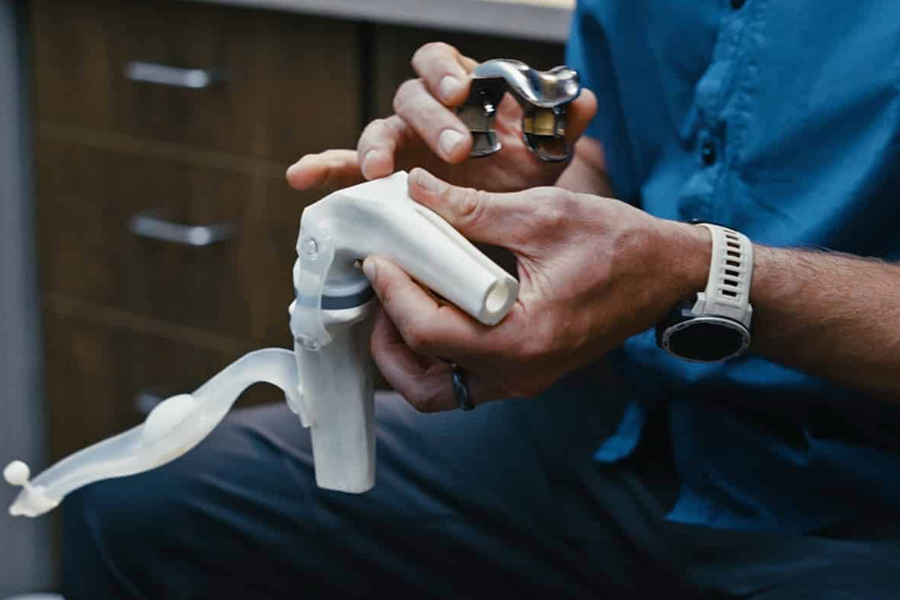Types Of Knee Replacement Surgeries: A Comprehensive Guide

Image Source: coloradoadvancedorthopedics.com
Arthroplasty, or knee replacement surgery, is a typical orthopedic operation that helps people with significant knee joint injuries feel better and get back to their normal activities. Modern medicine and surgical practice have expanded the range of knee replacement procedures to meet the demands of a wide variety of patients. This all-inclusive book will delve into the numerous kinds of knee replacement surgeries, as well as their indications, methods, and results.
Total Knee Replacement (TKR)
One of the most popular ways to replace a knee is with a total knee replacement surgery or TKR. Using metal and plastic prosthetic components, the patient’s whole knee joint is replaced. Those suffering from severe forms of knee degeneration, such as rheumatoid arthritis, osteoarthritis, or another degenerative joint disease, are usually advised to consider TKR. To restore the knee’s normal range of motion, the operation involves removing damaged cartilage and bone and implanting prosthetic components.
Partial Knee Replacement (PKR)
A less intrusive alternative to total knee replacement (TKR) is partial knee replacement (PKR), which entails replacing just the injured knee joint. If the injury to the patient’s knee is restricted to a single compartment, this surgery may be able to help. As a result of protecting the patient’s healthy bone and tissue, PKR allows for a more rapid recovery and improved mobility than TKR. Before PKR, patients are evaluated extensively to guarantee the patella and other knee compartments are in good health and able to operate normally.
Knee Resurfacing
Knee resurfacing, also known as unicompartmental knee replacement or patellofemoral arthroplasty, is a minimally invasive procedure that targets specific areas of the knee joint affected by arthritis. Unlike total knee replacement, which replaces the entire joint, knee resurfacing involves preserving the majority of the natural knee structure and replacing only the damaged surfaces with prosthetic components. People whose arthritis is in its early stages or who have damaged cartilage in just one area of the knee are good candidates for this operation.
Complex Or Revision Knee Replacement
Revision or complex When other knee replacement procedures have failed or caused problems, the patient may need a new knee. This procedure involves removing the existing prosthetic components and replacing them with new implants to correct deformities, instability, or mechanical issues. Complex knee replacements may require specialized techniques, implants, and preoperative planning to achieve optimal outcomes. Patients undergoing revision knee replacement often have unique challenges, such as bone loss, ligament deficiency, or infection, which require expert management.
Minimally Invasive Knee Replacement
Minimally invasive knee replacement surgery utilizes advanced surgical techniques and specialized instruments to minimize tissue damage and trauma during the procedure. Minimally invasive surgical procedures provide for shorter recovery periods, less blood loss, and smaller incisions than conventional open surgery. However, not everyone is a suitable candidate for minimally invasive knee replacement, and the decision depends on factors such as the level of knee damage, patient anatomy, and surgeon expertise.
Conclusion
If you or a loved one suffers from persistent knee pain or disability, knee replacement surgery may be the best option for treatment. Because there are so many different surgical techniques, patients can get treatment plans that are unique to their ailments and needs. Knee resurfacing or a complicated revision surgery—it doesn’t matter. Alternatively, if you opt for a less intrusive procedure, the end goal is to alleviate your discomfort and enhance your quality of life. Consult a board-certified orthopedic surgeon to find out which knee surgery option is ideal for you.




